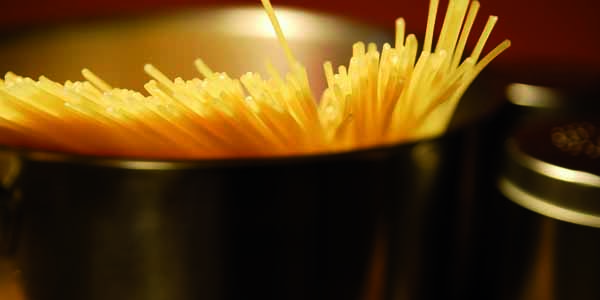
Pasta sales in the Uk are going through a phase of stabilisation after several years of strong growth. The British market has proven to be receptive towards Italian cuisine, as consumers manifest their appreciation for traditional staple foods such as pasta. Besides the two main sub-categories in the sector – dried and chilled/fresh pasta – the UK market has developed a third sub-category of canned or preserved pasta, which is for most part absent in other EU markets.
Dried pasta is by far the largest category in the sector, and generates some 53% of retail value sales in the Uk, according to recent research by Euromonitor International. The category, says the agency, is “dominated” by private label, which retain a value share of 59%.
Although the product classifies among the low-price staples, it has been observed that pasta sales have not been immune to the tightening of consumer spending in recent years.
With households seeing their food shopping budget shrinking, consumers increasingly opted for private label rather than branded products. In 2013, private label expanded its share by 1%.
Declining sales have been registered for both fresh and canned pasta. In the first case, this is reportedly due to consumers resorting to cheaper dried pasta. Euromonitor expects dried pasta sales to increase 2% as a result. Nevertheless, fresh pasta sales are thought to be recovering in the coming years. Canned pasta sales are forecast to decline further, as consumers perceive the product as unhealthy and move towards dried or fresh pasta options.
Italian brands that can be found in British stores include De Cecco, Buitoni and, to a lesser extent, Barilla. Besides supermarkets, brand-loyal consumers are also inclined to shop for branded pasta in the many Italian food stores dotted around the main cities.
